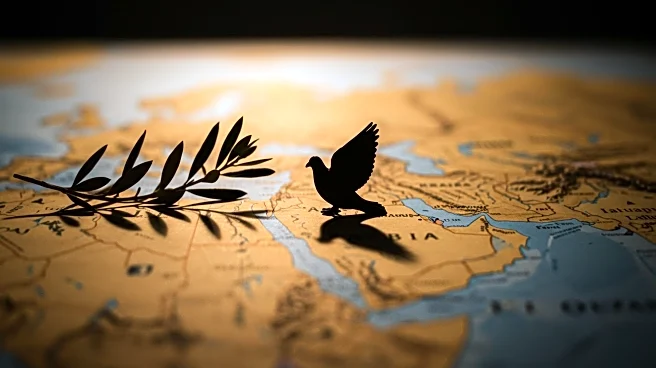What's Happening?
During a visit to Indonesia, German Foreign Minister Johann Wadephul emphasized the need for a two-state solution to resolve the ongoing Israel-Palestine conflict. In a meeting with Indonesian Foreign Minister Sugiono, Wadephul called for an immediate ceasefire in Gaza and the release of hostages held by Hamas. Both ministers highlighted the humanitarian crisis in Gaza and agreed that a negotiated two-state solution is essential for peace. Germany, while supporting Israel's fight against Hamas, urged Israel to alleviate suffering in Gaza. The meeting also covered geopolitical challenges and trade barriers, with Germany and Indonesia discussing a Comprehensive Economic Partnership Agreement.
Why It's Important?
The endorsement of a two-state solution by Germany, a key ally of Israel, is significant in the context of international efforts to resolve the Israel-Palestine conflict. Germany's call for a ceasefire and humanitarian relief in Gaza reflects growing international concern over the humanitarian impact of the conflict. The discussions in Indonesia also underscore the importance of global partnerships in addressing geopolitical and economic challenges. Germany's commitment to Indonesia's clean energy future and the potential Comprehensive Economic Partnership Agreement highlight the strategic economic ties between the two nations.
What's Next?
Negotiations between Indonesia and Germany on a Comprehensive Economic Partnership Agreement are expected to conclude in 2026, potentially expanding economic cooperation between the two countries. Germany's continued support for a two-state solution may influence diplomatic efforts and discussions in the region. The international community will be watching closely to see how Germany's stance impacts the dynamics of the Israel-Palestine conflict and broader geopolitical relations.








